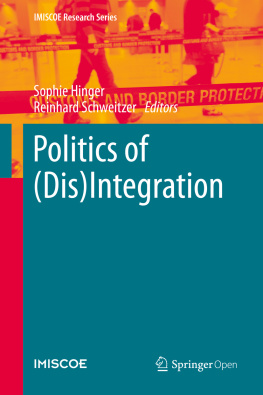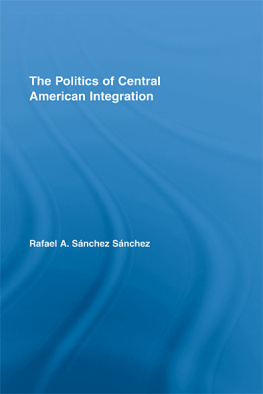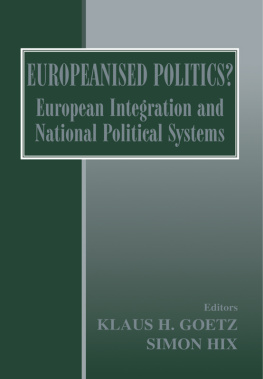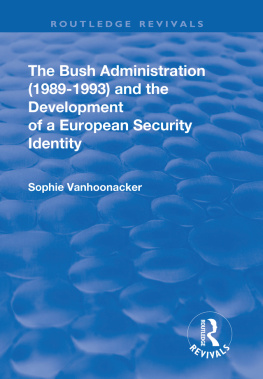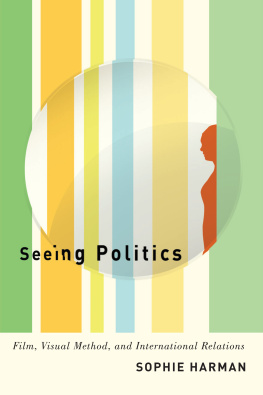Sophie Hinger - Politics of (Dis)Integration
Here you can read online Sophie Hinger - Politics of (Dis)Integration full text of the book (entire story) in english for free. Download pdf and epub, get meaning, cover and reviews about this ebook. year: 2020, publisher: Springer International Publishing, genre: Politics. Description of the work, (preface) as well as reviews are available. Best literature library LitArk.com created for fans of good reading and offers a wide selection of genres:
Romance novel
Science fiction
Adventure
Detective
Science
History
Home and family
Prose
Art
Politics
Computer
Non-fiction
Religion
Business
Children
Humor
Choose a favorite category and find really read worthwhile books. Enjoy immersion in the world of imagination, feel the emotions of the characters or learn something new for yourself, make an fascinating discovery.
- Book:Politics of (Dis)Integration
- Author:
- Publisher:Springer International Publishing
- Genre:
- Year:2020
- Rating:5 / 5
- Favourites:Add to favourites
- Your mark:
- 100
- 1
- 2
- 3
- 4
- 5
Politics of (Dis)Integration: summary, description and annotation
We offer to read an annotation, description, summary or preface (depends on what the author of the book "Politics of (Dis)Integration" wrote himself). If you haven't found the necessary information about the book — write in the comments, we will try to find it.
Politics of (Dis)Integration — read online for free the complete book (whole text) full work
Below is the text of the book, divided by pages. System saving the place of the last page read, allows you to conveniently read the book "Politics of (Dis)Integration" online for free, without having to search again every time where you left off. Put a bookmark, and you can go to the page where you finished reading at any time.
Font size:
Interval:
Bookmark:
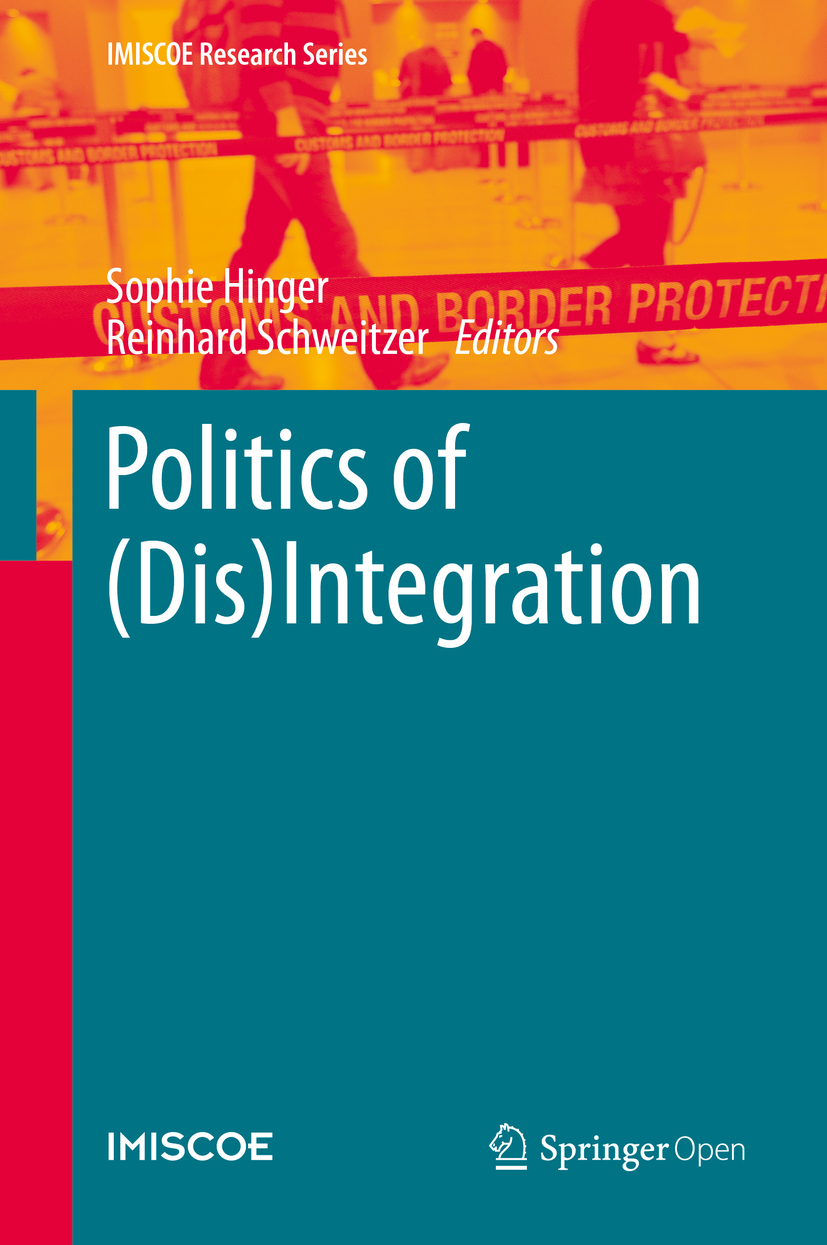
This series is the official book series of IMISCOE, the largest network of excellence on migration and diversity in the world. It comprises publications which present empirical and theoretical research on different aspects of international migration. The authors are all specialists, and the publications a rich source of information for researchers and others involved in international migration studies.
The series is published under the editorial supervision of the IMISCOE Editorial Committee which includes leading scholars from all over Europe. The series, which contains more than eighty titles already, is internationally peer reviewed which ensures that the book published in this series continue to present excellent academic standards and scholarly quality. Most of the books are available open access.
For information on how to submit a book proposal, please visit: http://www.imiscoe.org/publications/how-to-submit-a-book-proposal .
More information about this series at http://www.springer.com/series/13502


Open Access This book is licensed under the terms of the Creative Commons Attribution 4.0 International License (http://creativecommons.org/licenses/by/4.0/), which permits use, sharing, adaptation, distribution and reproduction in any medium or format, as long as you give appropriate credit to the original author(s) and the source, provide a link to the Creative Commons license and indicate if changes were made.
The images or other third party material in this book are included in the book's Creative Commons license, unless indicated otherwise in a credit line to the material. If material is not included in the book's Creative Commons license and your intended use is not permitted by statutory regulation or exceeds the permitted use, you will need to obtain permission directly from the copyright holder.
This Springer imprint is published by the registered company Springer Nature Switzerland AG.
The registered company address is: Gewerbestrasse 11, 6330 Cham, Switzerland
This book is the outcome of a collective endeavour to make sense of migration and integration processes and their management in contemporary Europe and beyond, which started within the framework of the Marie Skodowska-Curie Initial Training Network (ITN) Integration and International Migration: Pathways and Integration Policies (INTEGRIM). From the outset, this volume was primarily meant to constitute a project deliverable of the INTEGRIM network and, more precisely, of the working group on labour and social integration, in which several contributors to this volume were involved. However, we decided to put significantly more time and work into this book project than would have been necessary in order to tick a box on the deliverables list. We wanted to use the financial resources at our disposal and our existing network of both young and senior migration scholars to bring together insights from different European and other contexts in order to contribute to the heated debates around migration and integration.
Just after the Brexit decision, and in parallel with the ongoing conflict over refugee migration to and within Europe, we invited scholars from the INTEGRIM network to contribute to a collective volume under the working title Managing (Dis)Integration . We also extended the call to selected participants of the ITN Changing Employment, which brought together young scholars working on contemporary labour-market issues in Europe, some of whom were focusing on the intersection of employment and migration. In February 2017, we organised a first meeting at the Central European University (CEU) in Budapest, to which all potential contributors were invited. The CEU, which provided us with an excellent venue for exchanging our viewpoints and ideas, has recently been threatened with closure by the Hungarian government. It is with great concern that we follow the latest political developments in Hungary which, amongst other things, have led to the suspension of programmes for refugee education as well as crucial research on migration and migrant solidarity an outcome which directly affects some of the contributors to this volume. The fact that we, as somewhat privileged young scholars, are also affected by the rise of nationalist and authoritarian forces in and beyond Europe in fact strengthens the very argument of this collective volume.
Our early discussions hugely benefited from the fact that each participant contributed specific knowledge and could draw on recent research experience in various landscapes of (dis)integration, both within and beyond Europe. Apart from varying geographical contexts, the proposed chapters also focus on a diverse range of groups or categories of people and scales of observation. A second meeting and dedicated workshop were held in April 2018 at the University of Sussex in conjunction with the Annual SCMR/JEMS and Graduate Migration conference. On this occasion, every author presented someone elses chapter in order to foster further engagement with and debates between the various contributions, arguments and perspectives.
The initial plan was to produce a truly collective publication, and to share the editing work between all contributors. Since this turned out to be impractical in terms of both internal and external communication as well as logistics, not least because the contributors were spread across many different countries and time zones, we ultimately took on the role as editors. This said, the whole process was still largely collaborative. For example, each author acted as a reviewer of at least two other chapters during the early stages of the writing process. Several rounds of reviews and discussions helped us to find a clear focus and solid collective argument to underpin the volume as a whole and to highlight and refine the connections between the individual chapters. Editing the book was a time-consuming and sometimes challenging task, but we are grateful to the author-collective for entrusting it to us. We certainly learned a lot in the process, especially because we could rely on the help and support of a whole range of other people.
Font size:
Interval:
Bookmark:
Similar books «Politics of (Dis)Integration»
Look at similar books to Politics of (Dis)Integration. We have selected literature similar in name and meaning in the hope of providing readers with more options to find new, interesting, not yet read works.
Discussion, reviews of the book Politics of (Dis)Integration and just readers' own opinions. Leave your comments, write what you think about the work, its meaning or the main characters. Specify what exactly you liked and what you didn't like, and why you think so.

